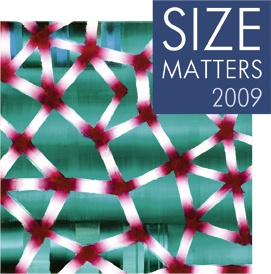Mar 12 2009
Nanotechnology is penetrating many areas of our daily lives at incredible speed, opening up new horizons of expectation and hope. At the same time, it is raising questions which affect our individual self-conception and that of our society. Will nanotechnology change our future: coexistence, the work and consumer environment, social security systems? And to what extent are we prepared to accept such change?

Ethical questions are at the centre of four topic modules
Naturalness - How is nanotechnology changing human existence?
Reality and vision - nano between fact and fiction?
Integrity issues - high tech for everybody?
Regulatory requirements - At what point should the state become involved in technological development?
Prominent experts will be discussing these issues from the perspective of the natural sciences, medicine, philosophy and theology and law.
Opening talks
Dr. Christian Ege, secretary of state of the ministry of economics and science of the Saarland
Jochen Flackus, NanoBioNet chairman
Naturalness issues
Dr. Donald Bruce, managing director Edinethics Ltd., UK
Prof. Cato T. Laurencin, M.D., Ph.D., University of Connecticut, School of Medicine, USA
Feasibility and vision
Christine Peterson, Vizepresident Foresight Institute, Palo Alto, USA
Prof. Dr. Dieter Sturma, Institute for science and ethics, Bonn
Distributive justice issues
Prof. Dr. Dr. Dietmar von der Pfordten, chair in philosophy of law and social philosophy, Georg-August University, Göttingen
Regulation needs
Dr. Dr. Tade Matthias Spranger, Institut für Wissenschaft und Ethik, Bonn
Walter J. Schulz-Schaeffer, M.D., Prion and Dementia Research Unit, Georg-August University, Göttingen